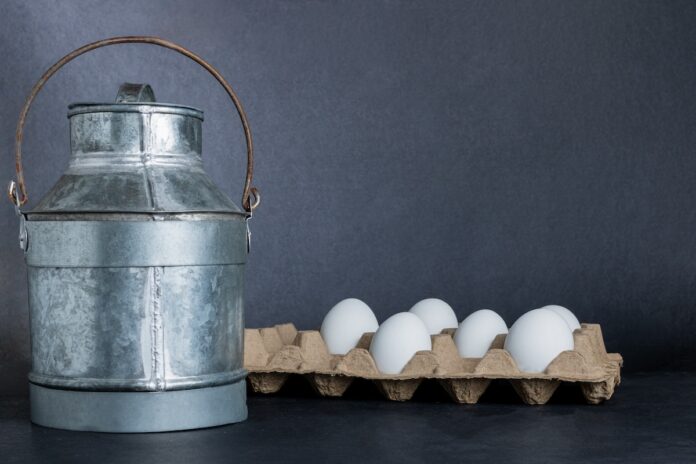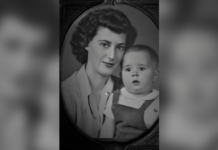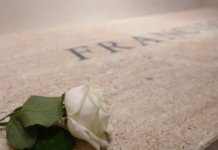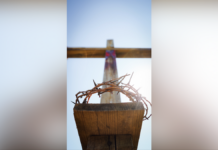
How often did you hear your mother say, “Eat those peas and carrots on your plate! There are starving children who would give anything for those peas!” When food was left uneaten by many American children, a similar guilt tactic was employed.
Another guilt-ridden beauty was, “When I was your age, I walked miles to school in the snow and rain every day! Why are you complaining about needing a car?”
The school lunchroom was the only place I left a morsel of food on my plate. I was that rare kid who loved vegetables as well as everything else. Mom would laugh about leftovers because she told folks, “We never have any!”
I was very young when I saw a newsreel depicting children begging for food. Flies flew around their gaunt, skeletal faces, and I remember the horror I felt watching the sadness. Perhaps, when I was little, I was determined to eat everything on my plate so I would never need to beg for food.
Now, I often griped about the car. And even though I felt the walk in the ice and snow was hard on my parents, why would that affect me? I was a Bonafide selfish teenager, just like the rest of my friends. Complaining was a rite of passage, right?
Then I grew up. I have been hungry and worried about food but knew I wouldn’t die of starvation. I have been without a car, but only in my first year of college when I walked to classes across my campus.
One freaky day in Georgia, my car got stuck in the snow, and the kids and I walked home. During the treacherous trek, I thought of Mom and Dad, who were required to do so on many cold, rainy days. That’s the day I felt remorseful for complaining about the car.
We live in America today where few die of starvation and a bus pulls up to most corners along with an Uber driver. Yet, in multiple parts of the world, children still beg for morsels of anything to sustain them. They are walking miles through challenging terrain to find safety and shelter.
Innocent minors live in war-torn villages ruled by rogue governments and terrorists. Because of the savagery, many are left alone to roam and forage like animals in a barren field.
We turn away because it makes us feel guilty. It should. Our mothers were right; there are still starving children somewhere who would beg for the scraps we throw away.
How many of us complain about poor service at a restaurant, the price of bacon, or electricity? How many of us just complain? If you need more clarification, look on social media for the rants and tirades regarding this or that. Complaining has become an art form. In other words, many are still selfish teenagers who have never reached maturity, empathy, or thankfulness.
Gratitude for all our bounty is a powerful antidote to selfish behavior. It encourages compassion for those desperately needing it and fosters a sense of contentment. All people are God’s people, born in all countries and ethnicities. To close our hearts and eyes to the suffering of others is a form of soul starvation. We will only grow in spirit if we learn to appreciate what we have.
During the Great Depression, my mother told us they didn’t have much but owned a cow and a hen. For some strange reason, the hen began to produce abundant eggs, and the cow’s milk flowed in buckets. Their neighbors were not so blessed, so my grandparents told their three almost-grown children to take the extra eggs and milk to their neighbors.
“But, mama, we might go hungry ourselves!” The three shouted.
My grandmother smiled and said, “We will never be without.” Of course, they didn’t understand at first.
Soon, the three realized that the more they gave away, the more the hen and cow worked to meet the demand. Giving sustained them and brought them joy and a sense of abundance.
Mom said, “We never went hungry. And we never understood why or how we had so much when we had nothing but a hen and a cow.”
My grandparents believed the words in the gospel, “Give, and it will be given to you! A good measure pressed down, shaken together, and running over will be poured into your lap. For with the measure you use, it will be measured to you.” Luke 6:38
Loving our neighbors and all of God’s children gives us the riches, peace, and understanding we need.
It is the season when we should do more, say less, give more, expect less, and pray that God offers hope to those who have so little by using us who have so much.
_____
Lynn Walker Gendusa is a Georgia author and columnist. Her latest book, “Southern Comfort: Stories of Family, Friendship, Fiery Trials, and Faith,” is available on Amazon. She can be reached at www.lynngendusa.com.
For more of Lynn’s inspirational stories, click here.







